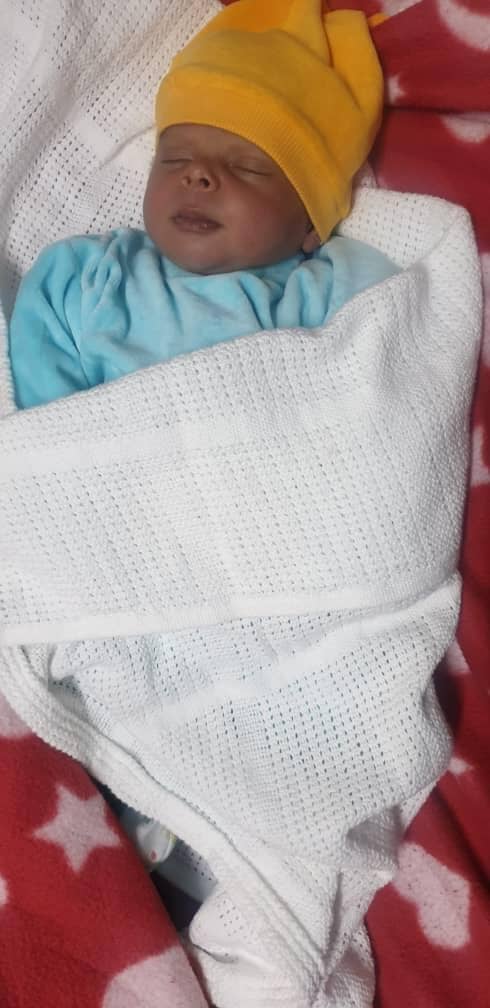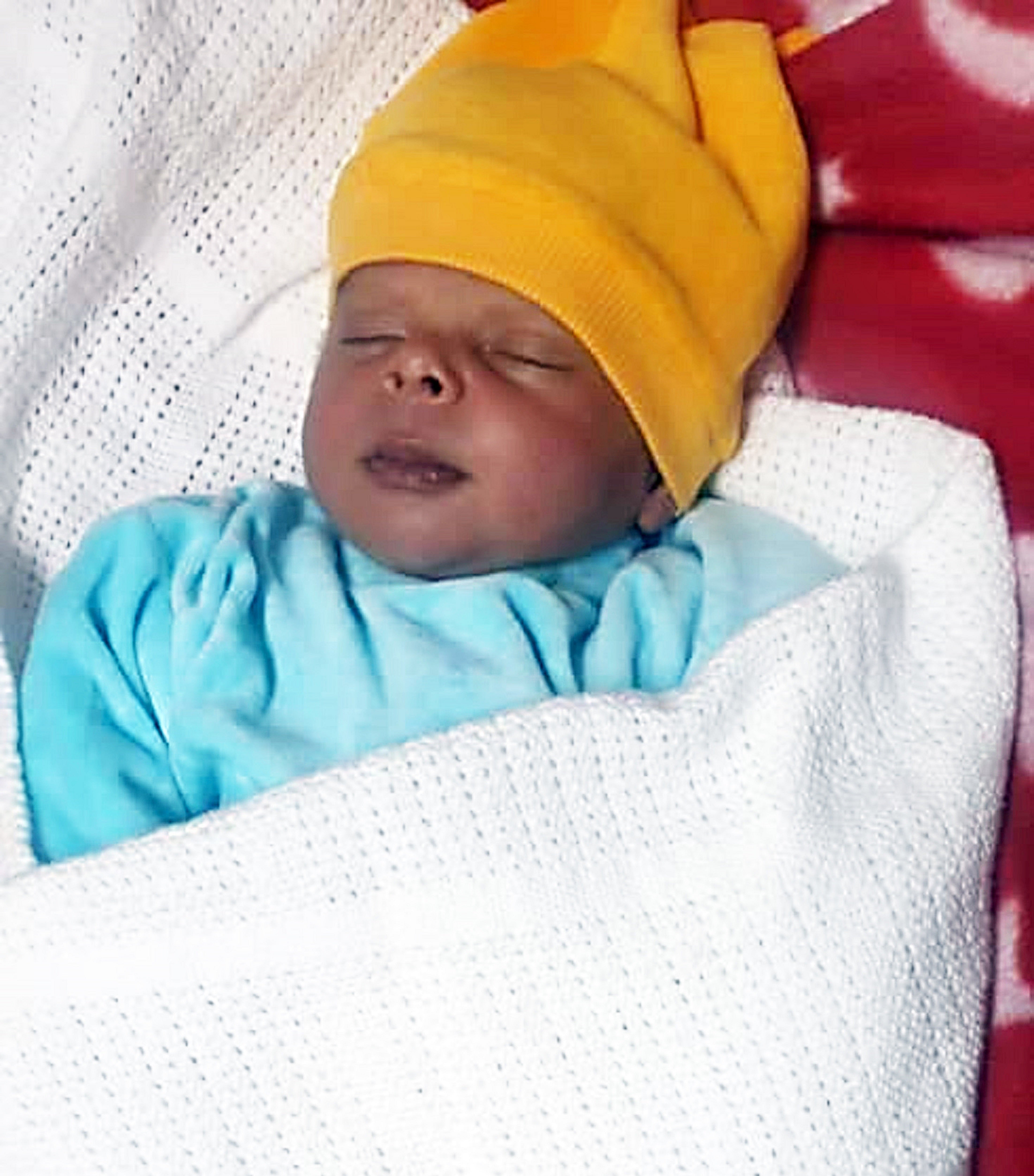Supporting the Most Vulnerable Women during Devastating Winter in Syria
Damascus – Syria,
“I feel so safe and peaceful now, I will take care of gorgeous Kareem, my new baby born, after being so anxious about him, and especially during the Corona pandemic,” Mariam, 18 years old, started telling us her story.
Mariam was fragile, exhausted, and frightened when she entered the UNFPA – supported shelter for women and girls survivors of gender-based violence at the end of her eighth month of pregnancy, on her own and with no one to provide help. At this center, which provides protection for at-risk women and girls, a medical examination has been carried out to her instantaneously by a specialist doctor, who confirmed the necessity of transferring her to the nearest hospital as she is in early labor and there is a danger to her and her baby’s life.
The UNFPA team has been contacted by the shelter seeking urgent support, as Mariam has been referred to the nearest hospital where she delivered her baby, Kareem, in a safe, clean place as well as she has been provided with the necessary medical care over two days.

“Every mother and newborn deserve a safe childbirth – no matter where they live. In addition to the many other challenges women face in the fragile settings in Syria, going through pregnancy and childbirth is extra vulnerable. By joining forces with strong players in the humanitarian field and using a combination of on-the-ground experience, we can ensure a much stronger and effective response,” says Dr. Iyad Nasr, UNFPA Representative in Syria.
When Mariam returned to the center with her baby, she was provided with the basic needs of personal care for both of them, as well as, the post-natal care while the baby’s critical condition was supervised by the center’ pediatrician throughout the day. She has also been transferred to a warm and sunny room, in light of the harsh cold weather, the shortage of electricity due to the lack of fuel, and the deteriorating economic conditions. Such harsh conditions affected Mariam’s health and the baby’s condition was alarming as he was turning blue because of the severe cold weather, failing to thrive and is becoming prone to death.
Winter in Syria is harsh, with frequent snow and freezing temperatures. For vulnerable families, the coldest months can lead to a doubling of their budget to cover heating, winter clothes, food and medicine.
UNFPA’s presence in the field and the efficient coordination with the local partners have enabled us to be the first contact point to seek support, where UNFPA’s winter assistance provided much-needed hope during the cold, winter months to women, who have already faced enormous challenges to their wellbeing as a result of the COVID-19 pandemic, such as the needed fuel, medicines and food for Mariam and Nasr and for other women & girls who are in risk in the center. “Our timely contribution didn’t bring only fuel but warmth and life back to the new born baby. Food is arriving with the kids and moms are finishing their last bite”, Dr. Nasr explained while following up Mariam’s case on daily basis.

“Now, I am no longer worried about Nasr’s nutrition, when I’ve arrived I was very anxious how I would be able to give birth to this child, I felt aloneness, I have no one to care about me or my unborn child in the whole universe”, Mariam continued telling us about the hard times that she passed by, “yet during giving birth, I’ve received the best health care, and they were concerned about my health, my psychological condition, they did not leave me for a single moment. I felt that I am not alone anymore and I have someone who is thoughtful about me and waiting for me outside the delivery room, thanks to UNFPA who enormously saved my life and helped me to have a healthy baby in such hard times”, Mariam stated with shining eyes like the brightest star in the night sky.
“Mariam is recovering now. She is a strong young woman who clings to life, and the child's health will be getting healthier soon. When Mariam came two weeks ago, she was extremely scared. Today she is reassured and knows that she and her baby are in safe hands and will not be harmed any longer. We have now started providing her specialized psychological treatment,” Sarab, the case manager shed the light on the progress of Mariam's case.
“I hope to learn how to read and write in order to teach my son, Nasr, what I was deprived of. I am also skilled in embroidery work and want to learn it in a specialized center to be independent and have my own income sources that help me raise my child”, Mariam concluded her story with glimmering eyes of hope.
Background Info:
UNFPA in Syria works to make women’s health, safety and dignity a humanitarian priority and mobilize action and funding to support women’s health in all humanitarian operations in Syria
UNFPA is working to improve maternal and newborn health in humanitarian and fragile settings in Syria through partnerships with several implementing partners.
UNFPA believes that every Syrian woman has the right to have access to affordable reproductive health care and be effectively protected from gender-based violence. UNFPA and partners are scaling up efforts to empower and improve the lives of Syrian women and youth and impacted communities in host countries by advocating for human rights and gender equality to better cope with and recover from the crisis.


